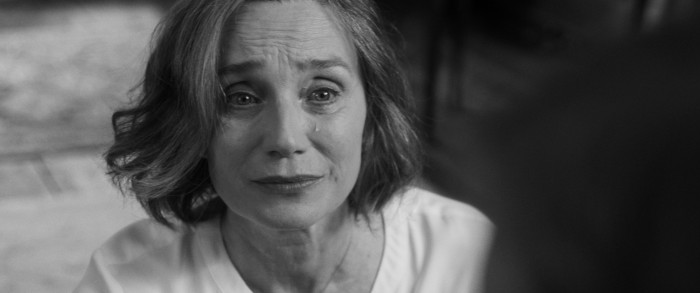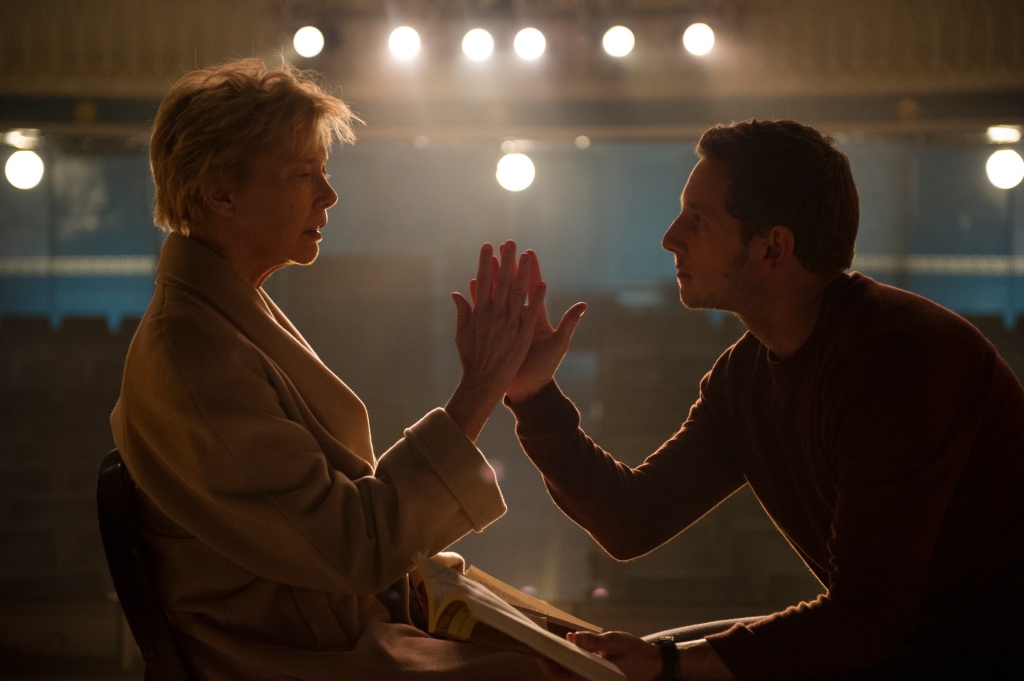 Director Sonthar Gyal’s experience as a cinematographer shines through in this exquisitely-filmed work. His Sun-Beaten Path includes achingly desolate vistas of Tibet, patient close-ups of the astonishing face of the lead actor, Yeshe Ladruk, and wonderful images of snow, rain, sun, fire, and desert. The protagonist, Nyima, on his way back home from his pilgrimage to Lhasa, prefers to walk rather than take the bus back home, and from the viewer’s vantage point, I don’t blame him: why be cramped in a “too-fast” bus when you can have all of Tibet to yourself? Throughout the film, I found myself wanting to commit to memory a roster of the film’s stills, which were beautifully-composed and touching in their selected use of color.
Director Sonthar Gyal’s experience as a cinematographer shines through in this exquisitely-filmed work. His Sun-Beaten Path includes achingly desolate vistas of Tibet, patient close-ups of the astonishing face of the lead actor, Yeshe Ladruk, and wonderful images of snow, rain, sun, fire, and desert. The protagonist, Nyima, on his way back home from his pilgrimage to Lhasa, prefers to walk rather than take the bus back home, and from the viewer’s vantage point, I don’t blame him: why be cramped in a “too-fast” bus when you can have all of Tibet to yourself? Throughout the film, I found myself wanting to commit to memory a roster of the film’s stills, which were beautifully-composed and touching in their selected use of color.
Despite its tendencies toward the road movie genre, the desired state in this narrative is clearly solitude. Nyima is only propelled forward by his steadfast reluctance to depend on the kindness of strangers, including that of a kind old man who takes detours on his own journey to help him. For Nyima, the only way to pay back the debt of death is to go on self-enforced exile, to deprive oneself of love, companionship, and comfort. Nature, however, is irrepressible, and through its different incarnations, Nyima finds that life does go on.
The physical trip is just the framework that encompasses the other journeys taking place: Nyima’s journey from guilt and despair to acceptance and self-forgiveness; his friend’s journey from children to children; and finally, the several journeys we take through life and love. There are many forms of transport in this film, from buses to motorcycles to trucks to tractors, but Gyal reminds us that the best route one is the one taken on foot, when we have nothing but ourselves and nature to confront.
The Sun-Beaten Path was the recipient of the 2011 Vancouver International Film Festival Dragons and Tigers award and has been nominated for other festival awards, including British Film Institute, CineManila, and Hongkong International.
The Sun-Beaten Path (Dbus Lam Gyi Nyi Ma) Dir. by Sonthar Gyal. Bei Jing Fang Jin Television Media Company, 2011. In Tibetan and Mandarin.




Leave a comment